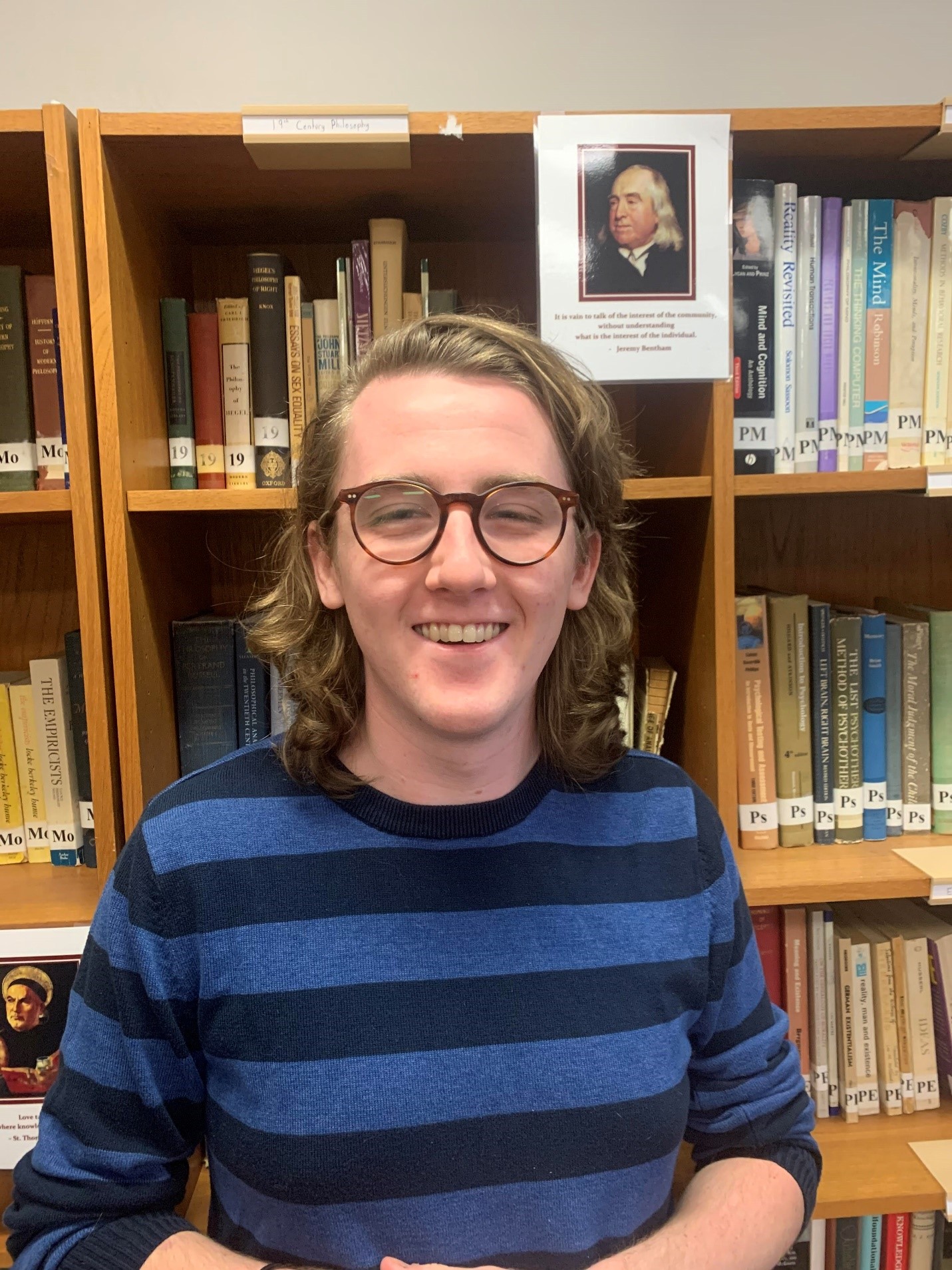Student Spotlight - Matthew Denaro

Matthew Denaro
Q: What is your current class standing and anticipated graduation date?
I’m a senior, and I’ll be graduating in the Spring 2020 semester.
Q: What are your major(s) and/or minor(s)?
I major in history and philosophy, with minors in political science and women’s studies.
Q: Why did you choose to become a philosophy major?
Upon entering Brooklyn College, I had a good sense of what my plan of study would be. I’ve had a long standing interest in history and philosophy, the intersection of the two, as well as political and gender theory. I think those four disciplines feed into each other really nicely in the sense that philosophy is something that is necessarily historical, and political and gender theory are things that are deeply influenced by philosophy and history, if not just philosophy itself.
Q: What are your goals for the future? Do you have plans to attend graduate school or do you have a career in mind upon graduation?
My goal is to become a professor in a history or philosophy department in North America. I plan to apply to Ph.D. programs in the fall of 2020.
Q: What are your interests in philosophy?
My research interests range from the dialectical materialism, existentialism, the notion of modernity, and communicative rationality. Karl Marx, Jean-Paul Sartre, GWF Hegel, and Jürgen Habermas are four major figures whose works I am particularly interested in.
Q: Do you have a favorite quote by a philosopher?
“While in communist society, where nobody has one exclusive sphere of activity but each can become accomplished in any branch he wishes, society regulates the general production and thus makes it possible for me to do one thing today and another tomorrow, to hunt in the morning, fish in the afternoon, rear cattle in the evening, criticize after dinner, just as I have a mind, without ever becoming hunter, fisherman, herdsman or critic.”- Karl Marx, The German Ideology.
I’m fond of this quote because it brings out a side of Marx that for one reason or another often gets obscured, one that looks to transform the alienated being of capitalism into a more fulfilling and authentic one. To me, it means that after private property is abolished, human beings will finally be able to determine their own being in terms of work on the basis of freedom, rather than economic necessity.
Q: What is your favorite book in philosophy?
If we’re talking fiction, I would say God Bless You Mr. Rosewater by Kurt Vonnegut. I think the message of radical kindness and humanity he offers in that book, among his other works, is quite special. However, for non-fiction, I would say The Invention of the Restaurant by Rebecca Spang. It’s a great historical study of the modern invention of the restaurant in ancient regime France, and is, in some respects, how I got introduced to Habermas.
Q: Have you had any recent accomplishments such as conferences you attended/presented at, awards/scholarships you have received, contests you have won, publications you have made, and so forth?
I won the Marge Magner Award from the Magner Center this semester to fund my internship at the Museum of Food and Drink. I was also awarded the Eric Steinberg Award by the Philosophy department in May.
Q: What are one or two fun facts about you?
I bake bread every week, and my main mode of transportation is by bicycle.






